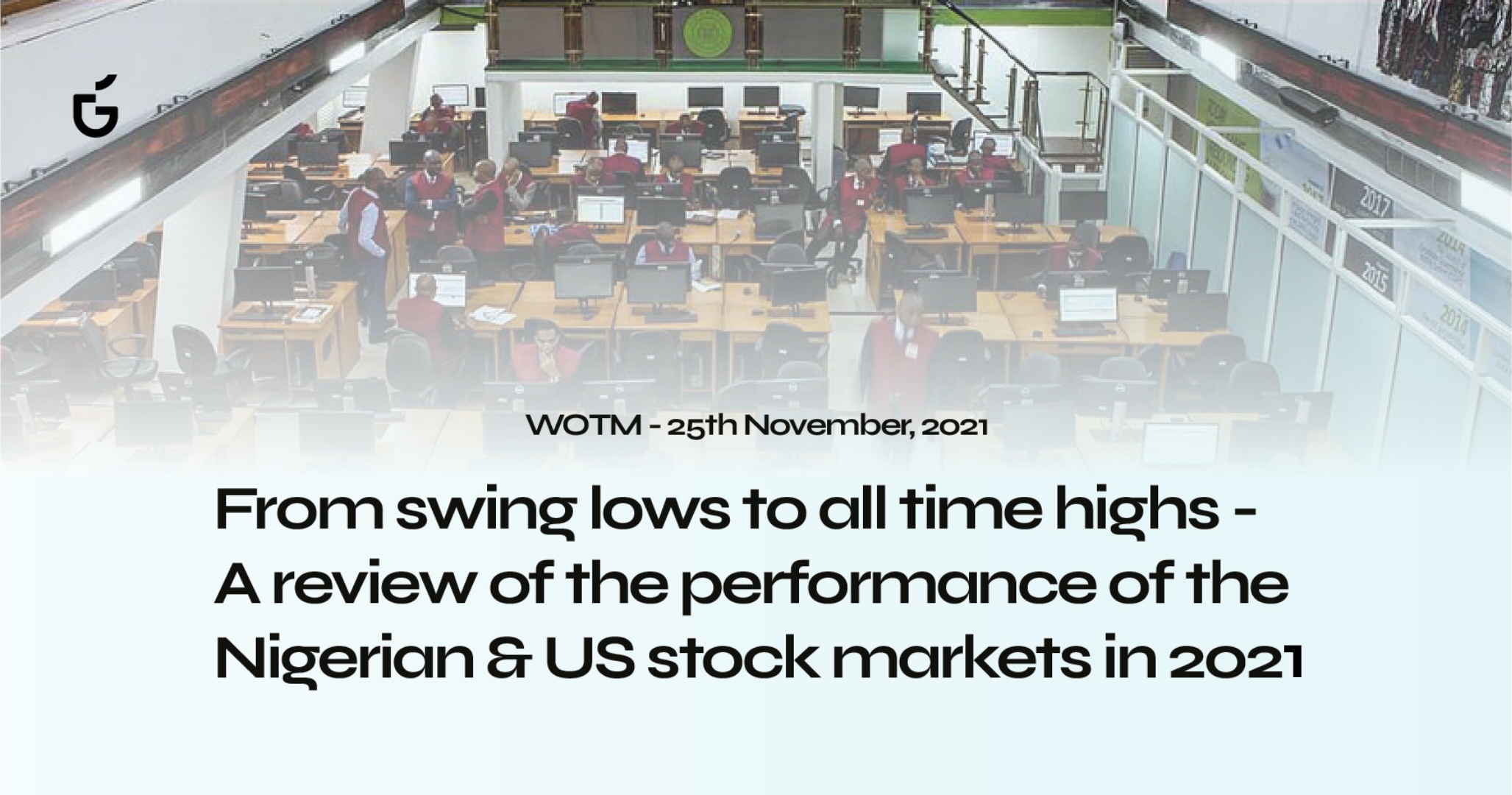 Africa
AfricaUnderstanding how companies are valued – A look into the MainOne acquisition
15 December, 2021
25 March, 2021 | 4 MINS READ
The Story
In Nigeria, the inflation rate has consistently increased over the past 12 months. This fact has us eager to see the outcome of every Monetary Policy Committee (MPC) meeting. So far, the MPC has held two meetings this year with the most recent meetings held on the 22nd and 23rd of March 2021.
Let’s do a quick recap on the responsibilities of the MPC
The Monetary Policy Committee is the highest policy making committee of the Central Bank of Nigeria (CBN). The committee’s key responsibilities include the following;
If that sounds like a lot of english, here’s what you should know; the foremost goal of the MPC is to control inflation and maintain a healthy balance of money supply in the economy.
Certain instruments or parameters are used to achieve this goal; the Monetary Policy Rate (MPR), Cash reserve Ratio (CRR) and Liquidity Ratio. A good understanding of this parameters will give you an understanding of how your purchasing power may be affected based on the committee’s decisions.
The Monetary Policy Rate (MPR) – This is the prime lending interest rate. The higher the MPR, the less loans taken by borrowers from commercial banks. That’s because the MPR determines the lending rates. If borrowers are discouraged from taking loans because the lending rates are high, then spending reduces in the economy because projects that would otherwise have started with cash raised from banks will no longer be executed. This is how the MPR basically determines the inflation rates in the country.
Cash Reserve Ratio (CRR) – This percentage determines the minimum amount in deposits the commercial banks need to reserve with the CBN. It affects the liquidity of banks and their ability to give out loans.
Liquidity Ratio – This ration demonstrates a bank’s ability to meet the request of its depositors for cash as well as other short-term obligations.
Now I understand better the parameters determined by the MPC. What was the outcome of the last meeting?
The MPC meets quarterly, except otherwise, in the event of an emergency. At the end of the recent meeting on the 23rd of March, the MPC voted to keep all previous parameters constant. These parameters are the MPR at 11.5%, retain the CRR at 27.5% and liquidity ratio at 30%.
The decision to retain these rates suggest that the CBN’s focus is stimulating output growth by encouraging spending that will create employment and boost economic growth. Basically, it also suggests that the CBN is either not focused on lower inflation rates or believes that increasing the MPR now will not improve inflation rate in the short term.
As an investor, how does the MPC decision affect my portfolio?
Inflation & Devaluation – Due to the curious case of inflation and Naira devaluation in the Nigerian economy today, you are battling two battles as an investor. You need to sustain your purchasing power (Inflation) and protect the value of your investment portfolio (Devaluation). A higher MPR would curb the inflation surge and vice versa, but the CBN does not appear to be focused on inflation rates at this point. This means inflation rates might remain the same or surge higher in the next few months.
What investment options should I consider for my portfolio?
Stocks – The good thing about investing in the stock market is a movement or no movement in interest rates does not directly affect the stock market. As an investor you should note that, an unfavourable bond environment will have investors fleeing to the stock markets.
We saw this happen in 2020 when the stocks rallied significantly due to the rush to the stock markets. The fixed income environment made many investors search for options to protect the value of their investments. When investors flee to the stock markets, higher volume of trades happen in the stock market. When stocks are traded at higher volumes within a period, stock prices are likely to go up.
Based on this, tread carefully in the stock market. Work with stock recommendations and expert advice. We provide this in the Green Investment Club.
Dollar denominated options – To hedge against the loss in purchasing power and devaluation of the Naira, holding a stronger currency as a portion of your investment portfolio will help. The go-to currency for most investors is the US Dollar. The US Dollar is the world reserve currency so almost every investor in the world owns assets in this currency. In an economy as uncertain as ours, it is best to hold positions in a currency that could serve as a safe haven, many Nigerians take advantage of this by investing in dollar denominated options. For more information on dollar denominated options, reach out to us and we can help you get started.
Alternative Investments – In addition to the traditional options shared above, there are a range of alternative investment options available to you as an investor. They include Agro-tech options, micro-lending options, venture capital investing or private equity. These options require due diligence and adequate knowledge of the risks before you invest in them. For more information on the credible partners we work with in The Green Investment Club (TGIC), join us!
On a final note, your investment portfolio is affected by the current economic conditions based on the mix of investment options in your portfolio. Interest rates determine key activities in financial markets so each asset in your portfolio will respond to interest rates in different ways. Know the difference.
 Africa
Africa15 December, 2021
 Africa
Africa09 December, 2021
Join the biggest
investment club in Nigeria.